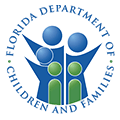The interplay between codependency and addiction is a complex and often destructive dance that can profoundly affect individuals and their relationships. As a 37-year-old woman who has journeyed through an intensive outpatient program for addiction, I have had firsthand experience of how codependency can fuel and perpetuate addiction. My hope in writing this blog is to explain the intricate relationship between codependency and addiction, sharing insights and reflections based on my personal journey of recovery during my time in a South Florida drug rehab outpatient program.
Understanding Codependency
Codependency can be described as an excessive reliance on others for self-worth and validation. It often manifests as a pattern of enabling, caretaking, and sacrificing one’s own needs for the sake of others. Individuals with codependent tendencies tend to have low self-esteem, struggle with setting boundaries, and have an overwhelming desire to please and gain approval from others. This was certainly true for me before I received the help I needed.
In the context of addiction, codependency plays a significant role in enabling and perpetuating substance abuse. Codependents may engage in behaviors such as providing financial support, making excuses for the addict’s behavior, or minimizing the severity of the addiction. These actions unintentionally shield the addict from the consequences of their actions, reinforcing the cycle of addiction. I had several people who unintentionally enabled my addiction, including my mother.
Codependency and Emotional Reliance
Emotional codependency is a critical component of the codependency-addiction dynamic. Codependents often develop an emotional reliance on the addict, deriving their sense of self-worth from the ability to care for and fix their loved ones. The addict, in turn, becomes dependent on the codependent for emotional support, creating a mutually destructive pattern.
Codependency can lead to a loss of personal identity as the codependent becomes enmeshed in the life and struggles of the addict. The codependent’s focus on the addict’s needs and well-being often comes at the expense of their own self-care and individuality. This loss of identity can perpetuate feelings of emptiness, and resentment, and further contribute to the codependency-addiction cycle. This can be a sad situation, but not a hopeless one. I found help at a drug addiction rehab center in Fort Lauderdale, where I learned the skills to break free, not only from the drugs but from this codependent lifestyle.
Breaking the Cycle
Recovery from addiction and codependency requires a willingness to break the cycle and embark on a journey of self-discovery and healing. Through my own experience in a drug rehab outpatient program, I learned the importance of setting boundaries, developing self-care practices, and seeking support from my therapist and support group. Here’s what I learned:
- Setting and maintaining healthy boundaries is vital for the codependent and the recovering addict. This involves learning to say no, prioritizing self-care, and defining acceptable and unacceptable behavior within relationships. Establishing clear boundaries can help break the enabling cycle and encourage personal growth and autonomy.
- Self-care is an essential aspect of recovery from codependency and addiction. Engaging in activities that promote self-nurturing, such as exercise, hobbies, meditation, or therapy, can help restore a sense of self-worth and provide emotional stability. By prioritizing self-care, individuals can gradually shift their focus from the addict to their own well-being. For me, this was yoga classes and routine long walks on the beach.
- Recovery from codependency and addiction often requires professional support. Therapists, counselors, and support groups provide a safe space to explore underlying issues, gain insight into patterns of codependency, and develop healthier coping mechanisms. Seeking support from those who have experienced similar struggles can foster a sense of community and validation. My support group became closer than some of my family members. They were and are a great help to me.
- Participating in support groups such as Alcoholics Anonymous (AA), Narcotics Anonymous (NA), or Codependents Anonymous (CoDA) can connect individuals with others who have faced similar challenges. Sharing experiences, listening to other’s stories, and receiving guidance from those who have walked a similar path can be incredibly empowering and comforting. I learned that my experiences helped others, too, which was rewarding.
- Recovering from codependency and addiction involves rediscovering one’s identity. Engaging in activities that bring joy, exploring new interests, and reconnecting with passions and talents can help individuals reclaim their sense of self. This process requires self-reflection, self-acceptance, and embracing the journey of self-discovery.
- Recovery provides an opportunity to cultivate healthy relationships based on mutual respect, support, and individual growth. Learning to differentiate between healthy and unhealthy dynamics, setting boundaries, and practicing effective communication are key elements in building and nurturing positive connections. This is an ongoing process for both my mother and me. We are learning and growing a healthy relationship.
- Recovery is a lifelong process that requires ongoing maintenance and relapse prevention strategies. Continued participation in support groups, regular therapy sessions, and the practice of self-care and self-reflection are essential for long-term success. It is crucial to remain vigilant of codependent tendencies and addiction triggers and to seek help if old patterns resurface.
Conclusion
As a woman who has experienced the intertwined nature of codependency and addiction, I have come to understand the detrimental impact these dynamics can have on individuals and their relationships. Recognizing the signs of codependency, breaking the cycle, and embarking on a journey of recovery and self-discovery are key steps in breaking free from the destructive dance of codependency and addiction. By setting boundaries, nurturing self-care, seeking professional support, and fostering healthy relationships, individuals can build a foundation of strength, resilience, and personal fulfillment. Remember, recovery is a continuous process, and with dedication and perseverance, it is possible to break free from the grip of codependency and addiction and embrace a healthier, more authentic life. I know it will be a lifelong journey, but with The Beachcomber’s help, I am happy to be on the road to recovery.





